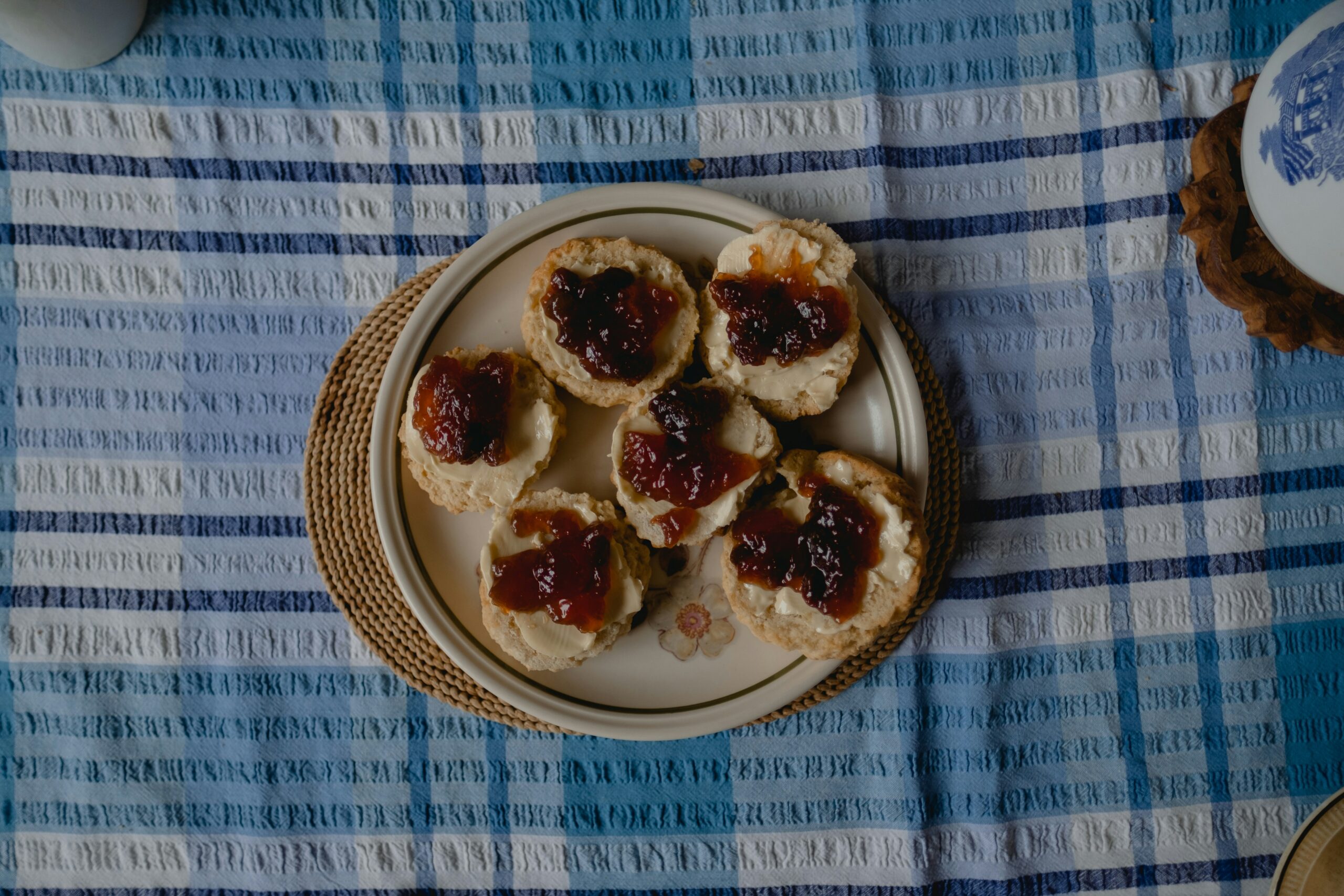The way we eat our scones is a matter of national debate. As the teatime tiff wages on, Claudia Cox asks: Devon or Cornwall?
For me and the other café staff at Hinton Ampner, a quaint National Trust house in the Hampshire countryside, three o’clock is cream tea o’clock. I weave amongst the stressed staff and whirring coffee machines, pouring tea and fetching jam. One elderly man peers over the till to ogle the baskets of sultana scones. “Is the cream from Cornwall or Devon?” he asks.
Throughout a year of serving scones here, I have never once bothered to read the label on the clotted cream. I flip over the box and reply, “Cornwall.” The man wrinkles his nose: “I’ll stick with the cappuccino, then.”
To the untrained eye, a cream tea is pretty much the same in any café – a steaming pot of tea, spreadable cream, gooey red jam, and a bread-like cake. Yet to some people in the UK, minute details over how cream teas are presented are not just a matter of preference, but a matter of regional pride.
Like many neighbours, Devon and Cornwall are locked in an eternal squabble that seems trivial to outsiders. Those from Devon are insistent that the proper way to make cream teas is to spread the cream on the scone before the jam. The Cornish believe the cream should be spooned on top of the jam.
“Each mouthful of a cream tea evokes happy memories of times shared with those we love”
Nicholas Rodda
Taylor Treloar works for Devon Cream Teas, which ships hampers of Devonshire scones across the UK. “A Devon Cream Tea just makes sense,” she insists. “The cream acts as butter and the jam is the delicious filling. The Cornish will disagree strongly with this, but science does suggest this is the simplest way to make a cream tea.”
In 2004, historians unearthed 11th-century manuscripts revealing that the monks at Tavistock Abbey in Dartmoor fed workers bread, clotted cream, and strawberry jam. Devonians cite this as evidence that they are the original creators of the cream tea, and so their preparation method is the most authentic.
The Cornish way is to dollop the cream on top of the jam. South West England has a long tradition of dairy farming, and there are 200 registered dairy farms in Cornwall. It is believed that the Cornish method better showcases locally-produced cream.

The late Queen’s chef Darren McGrady tweeted in 2018 that Her Majesty preferred to have cream on top of the jam at all royal events. A 2023 survey by the cream tea booking website afternoontea.co.uk revealed that 66 per cent of British people preferred jam on the scone first.
Karen Gilchrist is the founder of The Cornish Scone Company, a cream tea hamper business that uses her grandmother’s traditional Cornish scone recipe. “You can’t beat a Cornish cream tea,” she says. “Handmade scones, strawberry jam, and Rodda’s Cornish clotted cream. To my knowledge, Clotted cream originated in Cornwall, and what better use for it than to put it on a scone with jam?”
Nicholas Rodda is the fifth generation to run the Cornish clotted cream company Rodda’s. “Each mouthful of a cream tea evokes happy memories of times shared with those we love,” he says. “It could be because of these strong connections that different regions become competitive about whether jam or cream go first.”
Another passionate point of contention is whether the word “scone” should be pronounced to rhyme with “gone” or “phone”. Mark Huckvale, a professor of phonetic sciences at University College London, explains: “The pronunciation of relatively rare words can be influenced by their spelling, and ‘scone’ has similarities to both ‘lone’ and ‘gone’. So it is possible that different people have inferred different pronunciations from reading the word and these can ‘catch on’ in their peer group.”
This explains why people from different geographical and socioeconomic groups across the UK got used to pronouncing “scone” differently. The University of Cambridge created this map to demonstrate the differences in pronunciation across the country.
Gilchrist has a simpler explanation as to why she pronounces scone to rhyme with “gone”: “The other way sounds too posh. And as my husband says, ‘if you get a scone, it’s very soon gone.’”
